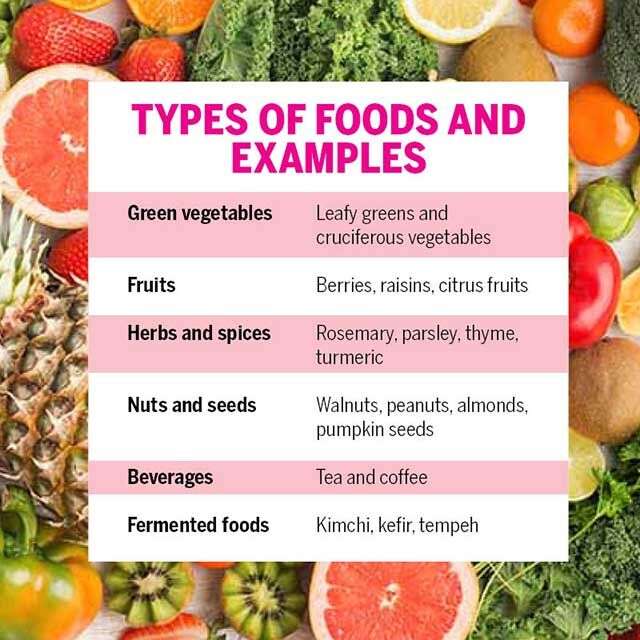
According to research, exercising can help reduce or prevent many chronic diseases. Research has shown that moderate exercise is associated with a lower risk of certain types and types of cancer. Regular exercise is associated with a lower risk of developing cardiovascular disease and diabetes. These conditions are more common in people who exercise regularly, and this can be prevented.
There are many benefits to exercising. It has been shown to increase memory and concentration and reduce the risk for depression and sleeplessness. Additionally, physical activity increases WBCs. This makes it an excellent antiinflammatory agent. This may be beneficial in preventing many conditions. There are many other benefits to exercise. This makes it a more popular option for treating chronic diseases.

Transdiagnostic means that the benefits of exercise may vary according to your symptoms. Exercise, for example, can improve your sleep quality, mood, and alleviate stress and anxiety. Exercise is also a great way reduce your risk of stroke, diabetes, heart disease and other illnesses. In addition to preventing these diseases, exercise is a valuable way to maintain a healthy weight and overall health.
The Mayo Clinic estimates that 29 million Americans have diabetes. Most people with diabetes are unaware of the condition and many have never been diagnosed. One study that looked at heart attack patients found a 20-25% reduction in mortality when compared with those who did not participate. Others showed even greater reductions. The results of large reviews of past studies showed that exercise rehabilitation helped people with heart attacks live longer.
Regular exercise has many health benefits. It can improve the quality of life and reduce the risk of many diseases, including type 2 diabetes, cardiovascular disease, and several types of cancer. It can also lower the likelihood of other health problems such as depression, anxiety, dementia, or dementia. These are just two of many benefits of exercising. It is important for people to get active so that they can avoid developing chronic diseases. Exercise has many other benefits.

Regular physical activity has been associated with a lower risk of many chronic illnesses. It can, for example, lower the risk of high bloodpressure and other complications. It can also enhance your overall health. A study of heart failure has shown that a high physical-activity level can prevent the formation of a stroke. This means that cardiovascular disease risks are lower if you exercise more. Exercise can help you lose weight if you are overweight.
FAQ
What can you do if your immune system is weak?
The human body is made up of trillions and trillions of cells. These cells collaborate to create organs, tissues and other functions. When one cell dies, another cell replaces it. Cells communicate with one another using chemical signals called hormonal hormones. Hormones regulate all bodily processes, from growth and development to metabolism and immunity.
Hormones are chemicals secreted by glands throughout the body. They travel through bloodstreams and act as messengers that control the function of our bodies. Some hormones can be produced in the body, while others may be made outside.
When a hormone-producing gland releases their contents into the bloodstream, hormone production begins. Once hormones become active, they move throughout the body until reaching their target organ. In some cases hormones can remain active for only a few hours. Others hormones remain active longer and still have an influence on the body's functioning long after they leave bloodstream.
Some hormones are produced in large quantities. Some hormones are produced in large quantities.
Some hormones are made at certain times in our lives. Estrogen is one example. It's produced in puberty, pregnancy and menopause. Estrogen is important for women to develop breasts and maintain bone density. It also helps prevent osteoporosis. It is also known to promote hair growth and keep skin soft and smooth.
How can I get enough vitamins
You can get most of the daily nutrients you need through your diet. However, if you are deficient in any particular vitamin, taking supplements can help. You can purchase a multivitamin that includes all of the vitamins you need. Or you can buy individual vitamins from your local drugstore.
If you are concerned about getting enough nutrients, talk to your doctor about what foods contain the best sources of vitamins. Some examples of rich sources of vitamins E and K include dark green leafy vegetables, such as spinach.
Ask your doctor if there is any doubt about how much vitamin you should be taking. Based on your medical history and your current health, your doctor can recommend the correct dosage.
How do you measure body fat?
A Body Fat Analyzer will give you the most accurate measurement of body fat. These devices measure the body fat percentage in people who wish to lose weight.
What is the problem with BMI?
BMI stands For Body Mass Index. This refers to the measurement of body fat using height and weight. BMI is calculated using the following formula:
Weight in kilograms divided with height in meters.
The result is expressed in a number between 0 - 25. A score of 18.5 or higher indicates overweight, while a score of 23 or higher indicates obesity.
A person who is 100 kg in weight and 1.75m in height will have a 22 BMI.
Which lifestyle is best for your health?
Healthy lifestyles include eating healthy food, regular exercise, good sleep, and avoiding stress. This will ensure that you live a long healthy life.
You can start by making small changes in your diet and exercise routine. For example, if you want to lose weight, try walking for 30 minutes every day. You can also take up dancing or swimming if you are looking to be more active. A Fitbit or Strava online program that tracks your activity can be joined.
How does weight change with age?
How do I know if my bodyweight changes?
Weight loss occurs when there is less fat than muscle mass. This means that you must consume more calories than you use daily. A decreased level of activity is the main cause of weight loss. Other causes include illness, stress, pregnancy, hormonal imbalances, certain medications, and poor eating habits. If there is more body fat than muscle mass, then weight gain can occur. It occurs when people consume more calories per day than they need. The most common causes are overeating, increased activity, hormonal changes, and excessive calories.
The primary reason we lose weight is that we consume less calories than what we burn. The main reason we lose weight is because we exercise more often. This increases our metabolism rate and burns more calories each day. But this doesn't guarantee that we'll lose weight. All that matters is whether we're losing weight or gaining muscles. If we are burning more calories than what we eat, then we will lose weight. But if you consume more calories than you burn, you're actually storing them for fat.
As we grow older, we tend to become slower at moving around and therefore we don't move as much. We also tend to eat less food than we did when we were younger. We tend to gain weight. However, our muscle mass is more important than we realize and makes us appear larger.
Without regularly weighing yourself, it is impossible to gauge how much weight you have lost. There are many options for measuring your weight. You can also measure your waist, hips or thighs. Some people prefer to use bathroom scales while others like to use tape measures.
Track your progress by measuring your waistline and weighing yourself every week. You can also take photographs of yourself every few years to track how far your progress has been.
You can also check your height online to find out how many pounds you have. If you're 5'10' tall and weigh 180lbs, you'd likely weigh 180lbs.
What is the difference between sugar and fat?
Fat is an energy source that comes from food. Sugar is a sweet substance found naturally in fruits and vegetables. Both fats and sugars provide the same number of calories. But, fats have more calories than sugars.
Fats are stored within the body and can contribute to obesity. They may cause cholesterol buildup and lead to strokes or heart attacks.
Sugars provide instant energy and are rapidly absorbed by the body. This causes blood sugar levels to rise. High blood glucose levels can pose a danger because they increase the chance of developing type II Diabetes.
Statistics
- In both adults and children, the intake of free sugars should be reduced to less than 10% of total energy intake. (who.int)
- Extra virgin olive oil may benefit heart health, as people who consume it have a lower risk for dying from heart attacks and strokes according to some evidence (57Trusted Source (healthline.com)
- According to the 2020 Dietary Guidelines for Americans, a balanced diet high in fruits and vegetables, lean protein, low-fat dairy and whole grains is needed for optimal energy. (mayoclinichealthsystem.org)
- WHO recommends consuming less than 5% of total energy intake for additional health benefits. (who.int)
External Links
How To
27 Steps to achieve a healthy lifestyle when your family only buys junk food
Cooking at home is the best way to eat well. But, it can be hard to make healthy meals because many people don't know how. This article will show you how to make healthier eating choices at restaurants.
-
Look for restaurants that offer healthy choices.
-
Before ordering any meat dishes, order vegetables and salads.
-
Ask for sauces without added sugar.
-
Avoid fried food.
-
Ask for grilled meats, not fried.
-
Don't order dessert unless your really need it.
-
Make sure that you have something else to eat after dinner.
-
Slowly chew and eat.
-
Eat water.
-
Don't skip breakfast and lunch.
-
Include fruit and vegetables with every meal.
-
Consider drinking milk instead of soda.
-
Avoid sugary drinks
-
Limit salt in your diet
-
You should limit how often you visit fast food restaurants.
-
Ask someone to join you if you cannot resist temptation.
-
Your children shouldn't watch too much television.
-
When you are eating, keep the television off.
-
Do not consume energy drinks.
-
Regular breaks from work
-
Exercise early in the morning.
-
Get active every day.
-
Start small, and work your way up.
-
Realistic goals are important.
-
Be patient.
-
Find time to exercise even if you don't feel like it.
-
Positive thinking is key.